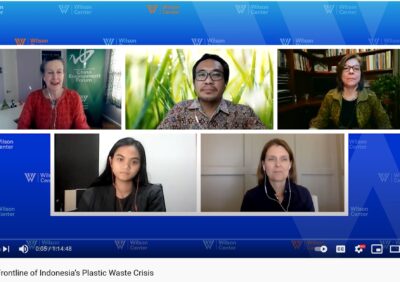USAID’s Clean Cities, Blue Ocean’s program in Indonesia closed in May 2024. USAID continues to address plastic pollution in Indonesia through USAID/Indonesia’s Sustainable Municipal Solid Waste Management and Partnership (USAID SELARAS, 2023-2028).
Indonesia is the largest archipelagic country in the world and the fourth most populous, with over 270 million people. The country has experienced rapid population growth across many of its inhabited islands, particularly in its urban centers—of which over half are located in coastal areas. By 2025, 68 percent of the country’s population is expected to live in urban areas, where it is estimated that only about half of generated waste is collected—the rest openly dumped or burned, with significant negative consequences for human health and the environment.
Across the islands, cultures, languages, and urban landscapes vary greatly, as do solid waste management systems and their levels of efficiency—challenging them to keep pace with continued growth and advance in ways that can curb ocean pollution and waste-linked greenhouse gas emissions.
From 2019-2024, USAID’s Clean Cities, Blue Ocean program piloted solutions in Indonesia to build coordinated waste management systems with increased local government capacity to reduce ocean plastic pollution.
Engagement Sites

At the national level, Clean Cities, Blue Ocean supported Indonesia to reduce land-based sources of ocean plastic pollution through its national Solid Waste Management Platform. As part of this work, the program engaged with sites throughout Indonesia to pilot solutions to stop the flow of plastic pollution, including:
- In Kota Semarang, USAID built local capacity for communities to manage solid waste aggregation facilities and enhance end markets; and empowered women to advance in the waste sector through training, mentorship, and the opportunity to receive funding to establish or expand entrepreneurial waste businesses.
- In Kota Makassar, USAID worked with local grantees to increase waste management capacity, improve community recycling systems and waste bank facilities, and enhance local government participation..
- In Kota Ambon, USAID provided technical assistance to develop a Solid Waste Management Master Plan that helped the city to better understand its existing solid waste system and manage it more effectively.
Impacts and Results
In Indonesia, program impacts (to date) include:
- Safely managed over 6.8 million metric tons of waste. Of this, over 1 million metric tons of plastic and other low-value waste—the equivalent of over 118 billion plastic bottles—were prevented from leaking into the environment.
- Improved solid waste services and programs for nearly 3.6 million people through support to and partnerships with government entities, local organizations, and businesses.
- Trained over 2,700 people from local government, informal waste sector, and local organizations to build local capacity for solid waste management planning and programs.
- Mobilized nearly $3.8 million in public and private investment to advance local solid waste management systems.
- Awarded over $3 million in grant funding to local partners to implement effective, locally-led solutions.
Program Grantees
- Bina Karta Lestari Foundation (BINTARI) is conducting research in Semarang to inform an integrated solid waste plan that improves the capacity of local material recovery facilities and waste banks. BINTARI is strengthening the capacity of community-based operators to run these facilities and engaging communities to adopt more sustainable solid waste management practices.
- From May 2023 to 2024, Milon Limbah Ambon worked to establish a new factory in Ambon to offtake plastic waste, especially low value plastics (other than PET). The new facility has increased the quality and quantity of recycled materials, improving the economics of local recycling while engaging the community to reduce, reuse, and separate their plastic waste to be recycled.
- Prevented Ocean Plastic Indonesia, a subsidiary of Prevented Ocean Plastic Southeast Asia, has established and is now running advanced collection and recycling infrastructure in the rapidly urbanizing cities of Semarang and Makassar to strengthen a supply chain model for recycled plastic.
- From 2023 to 2024, Rebricks is introducing new recycling technology and recycled building material products, such as pavers, blocks, and bricks, to the local market that make use of low-value plastic waste, while supporting city development.
- From March 2023 to 2024, Systemiq engaged with local governments and communities in select sites to improve waste management services. Waste collection services were formalized in 14 villages, benefiting over 20,000 residents who gained access to collection services for the first time. Systemiq also worked to promote sustainable waste practices, engaging over 70,000 people.
- From 2023 to 2024, Waste4Change, in collaboration with sub-grantee Green Moluccas and Yayasan Lestari Mulia Foundation, worked in Ambon and Makassar to increase their waste management capacity by researching their existing conditions, systems, stakeholders, and value chains to inform and implement new strategies for improved community-based management of TPS/3R and waste bank facilities, as well as improved local government participation in waste governance.
- From 2022 to 2024, Yayasan Kesejahteraan Keluarga Soegijapranata Semarang (YKKS) supported Clean Cities, Blue Ocean’s Women in Waste Economic Empowerment (WWEE) Activity in Indonesia, in collaboration with Johns Hopkins University. YKKS tailored and led the delivery of WWEE’s Basic Business Skills and Empowerment Training (BBEST) and Advanced Business Skills training to women working in waste; supported graduates with coaching and mentoring to develop and pitch business plans for funding; and provided regular mentoring and monitoring support to participants as they established and expanded their waste and recycling businesses. Watch this video to learn more.
Insights & Updates
See All Insights & Updates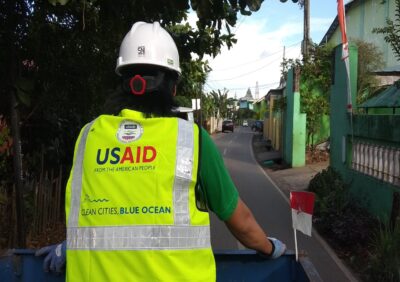
Clean Cities, Blue Ocean Indonesia: From Ocean Pollution to Lasting Solutions
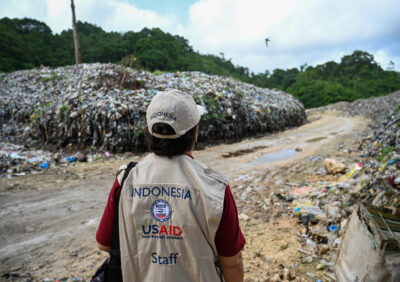
Preventing More Than One Million Tons of Plastic from Entering the Environment
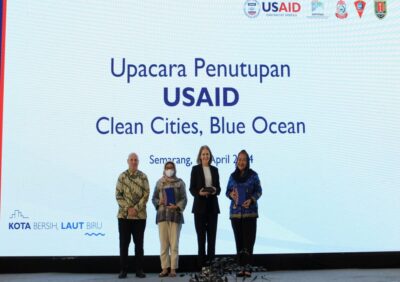
United States and Indonesia Celebrate “Clean Cities, Blue Ocean” Collaboration to Reduce Plastic Pollution
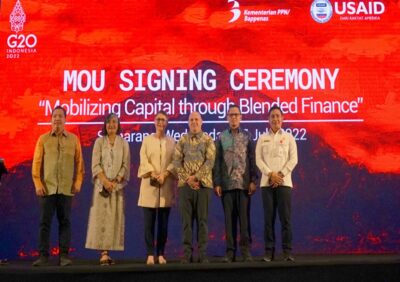
United States Announces Partnership to Reduce Ocean Plastic Pollution in Indonesia
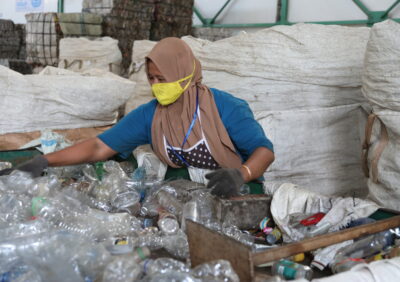
Blended Finance: A Blueprint to Support a Circular Economy in Indonesia
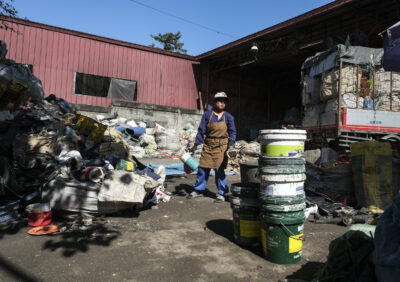
Six Ways USAID is Advancing Gender Equality in the Waste Sector
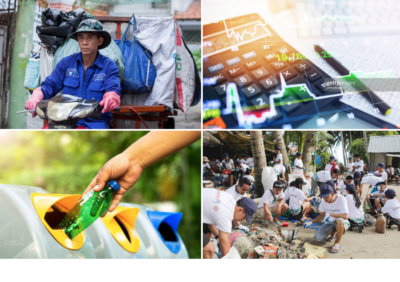
CCBO Launches New Capacity Building Tool for Local Governments
